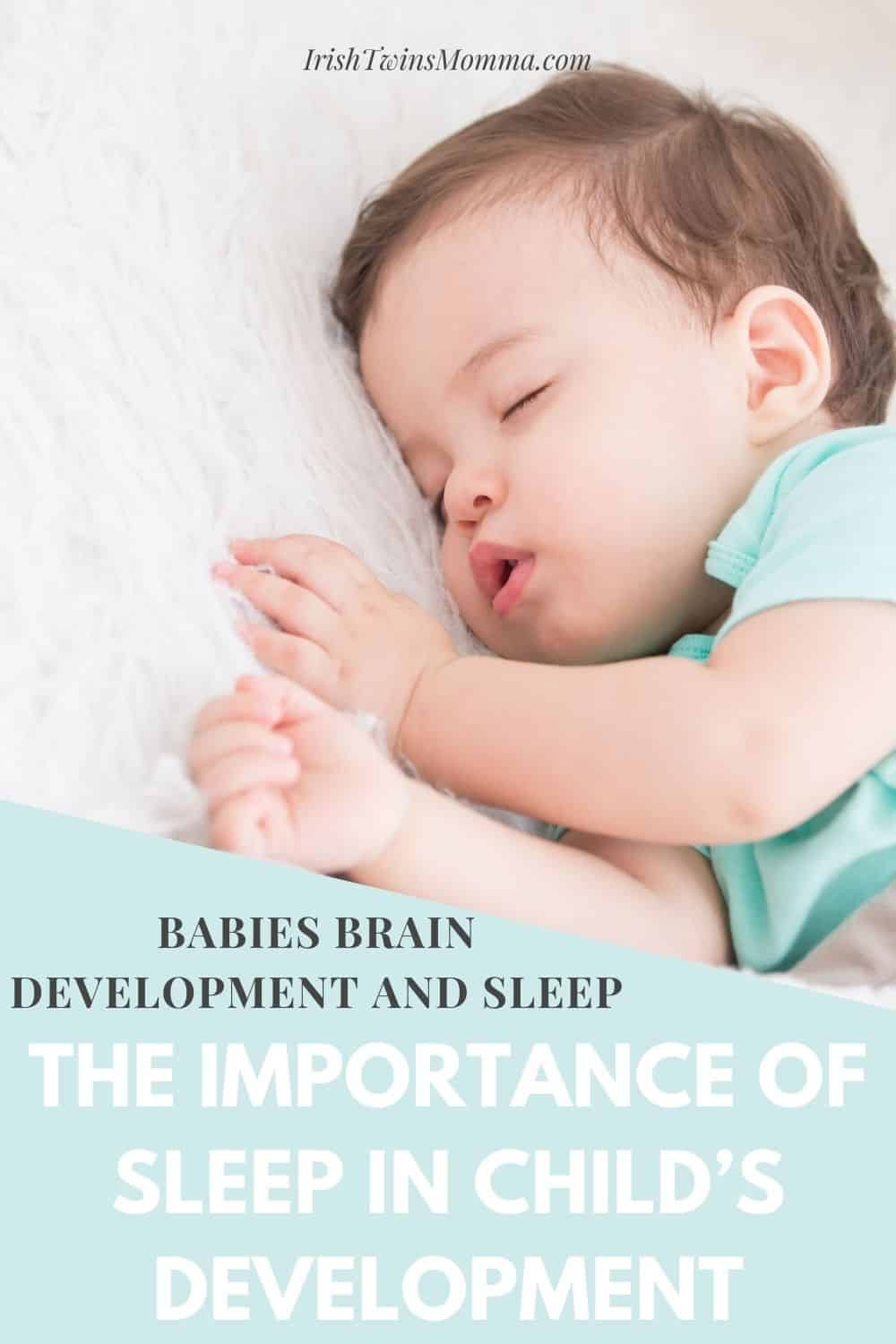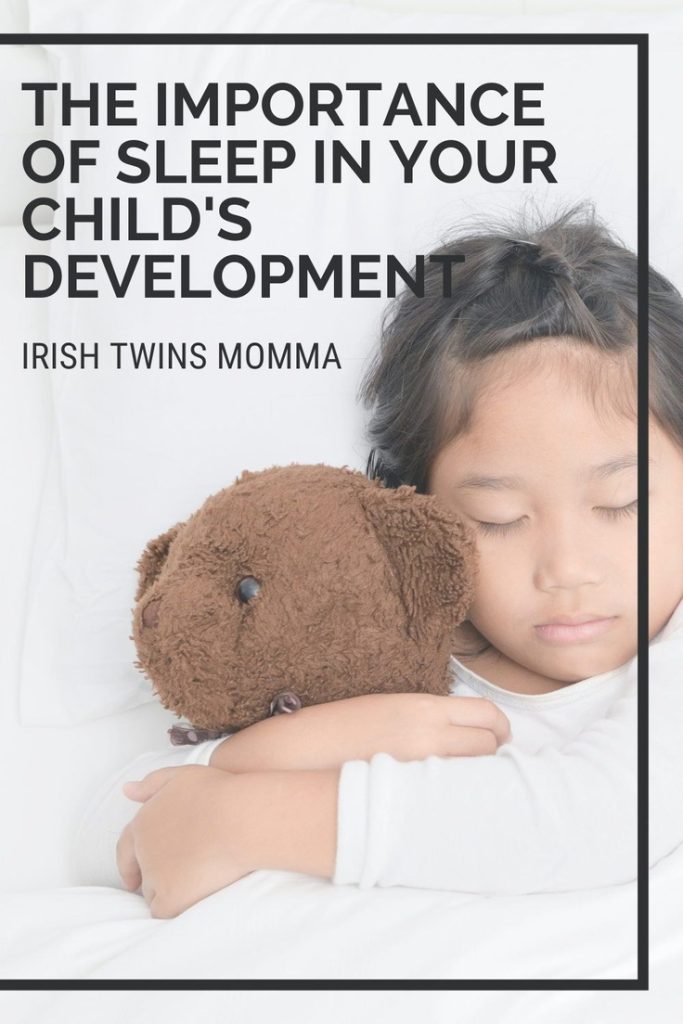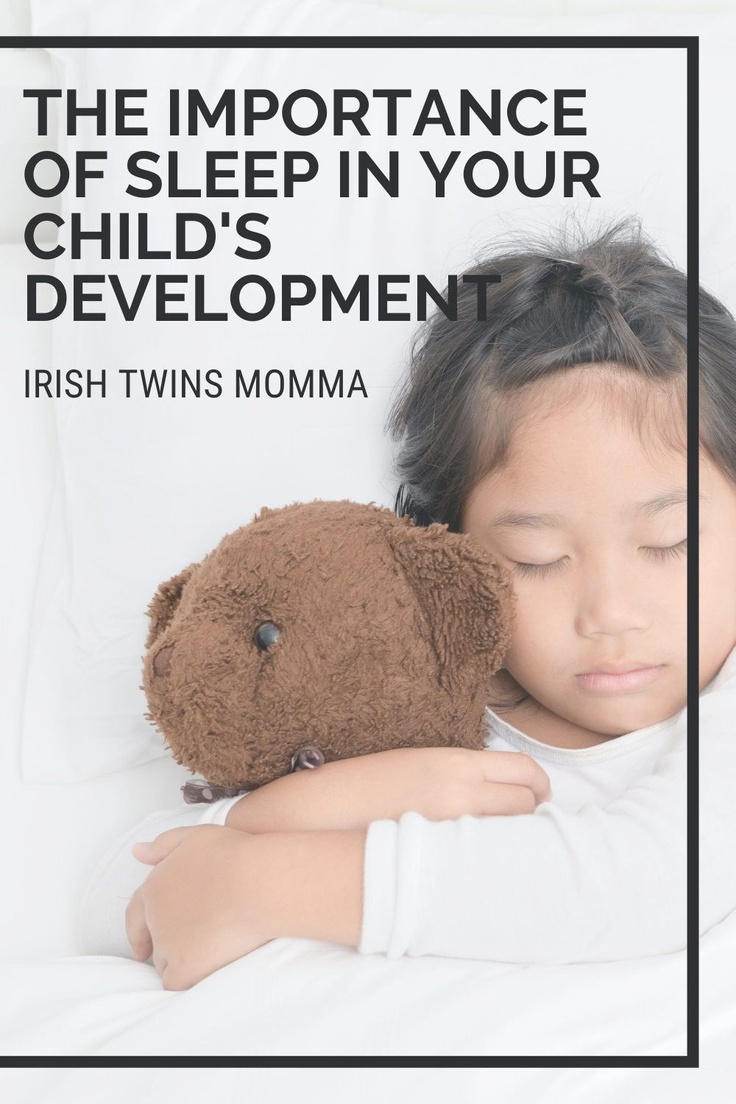This post contains affiliate links. If you click and buy, I may make a commission, at no cost to you. See my disclosure policy for more information.
Sleep plays a crucial role in a child’s brain development. During the early years of life, when the brain is rapidly growing and maturing, sleep is essential for optimal cognitive, emotional, and physical development.
Baby Sleep Statistics
Nap time and bedtime are greatly productive periods for babies.
- Half of their sleep is an active phase –until their 6 months of age.
- 40 percent of childhood is spent sleeping.
- From birth to 2 years of age, children spend more time sleeping than being awake.
- Babies spend about 80% of their time in active sleep while in the womb.
Not accidentally, it is during these phases of a children’s life that the brain is at its peak of growth.

Importance Of Sleep In Baby’s Development
Here are some key points regarding the importance of sleep in a child’s development:
- Growth and Development: Sleep is necessary for the overall growth and development of a child. During sleep, the body produces growth hormone, which aids in physical development, including the growth of bones, muscles, and organs. It also supports brain development by promoting the formation of new neural connections.
- Cognitive Functioning: Sufficient sleep is closely linked to cognitive functioning in children. Sleep plays a crucial role in memory consolidation, information processing, attention, and learning. It helps children consolidate and retain the knowledge and skills they acquire during the day, leading to improved academic performance.
- Emotional Regulation: A lack of sleep can have a significant impact on a child’s emotional well-being. Sufficient sleep helps regulate emotions, promotes emotional resilience, and reduces the risk of behavioral problems. Sleep deprivation, on the other hand, can contribute to irritability, mood swings, and difficulties in emotional regulation.
- Attention and Concentration: A well-rested child is more likely to exhibit better attention and concentration skills. Sustained attention and focus are crucial for learning, problem-solving, and social interactions. Inadequate sleep can impair a child’s ability to concentrate, leading to decreased productivity and learning difficulties.
- Physical Health: Sleep is essential for maintaining a child’s physical health. It supports the immune system, helps prevent illness, and aids in the recovery from illnesses or injuries. Sufficient sleep also contributes to a healthy body weight and reduces the risk of obesity, as it affects the regulation of hormones involved in appetite control.
- Behavioral and Mental Health: Sleep deprivation in children has been linked to an increased risk of behavioral problems and mental health issues. It can contribute to hyperactivity, impulsivity, aggression, and symptoms of attention deficit hyperactivity disorder (ADHD). Additionally, insufficient sleep is associated with an increased likelihood of anxiety and depression symptoms.
- Overall Well-being: Adequate sleep promotes overall well-being and quality of life for both children and their caregivers. It contributes to a child’s energy levels, mood stability, and ability to cope with daily challenges. Sufficient sleep also enhances parents’ well-being by providing them with essential rest and recovery time.
To ensure that children receive the necessary amount of sleep for their age, it’s important to establish consistent sleep routines and create a sleep-friendly environment. The recommended amount of sleep varies depending on the child’s age, with newborns needing around 14-17 hours, infants 12-15 hours, toddlers 11-14 hours, preschoolers 10-13 hours, and school-aged children 9-11 hours of sleep per day. Parents and caregivers should prioritize sleep as an integral part of their child’s healthy development.

Ways To Support Your Baby’s Sleep
Supporting your baby’s sleep is essential for their overall well-being and development. Here are some ways you can promote healthy sleep habits for your baby:
- Establish a Consistent Bedtime Routine: Create a calming bedtime routine that signals to your baby that it’s time to sleep. This can include activities like a warm bath, gentle massage, reading a book, or singing a lullaby. Consistency is key, as it helps your baby’s body and mind prepare for sleep.
- Create a Sleep-Friendly Environment: Ensure that your baby’s sleep environment is comfortable, safe, and conducive to sleep. Keep the room dimly lit, use white noise or a sound machine to drown out disturbing noises, and maintain a temperature that is neither too hot nor too cold. Use a firm crib mattress with a fitted sheet and remove any loose bedding or soft objects.
- Encourage Daytime Naps: Help your baby establish a regular nap schedule during the day. The number and duration of naps will vary depending on their age. Pay attention to your baby’s sleepy cues and provide a quiet and soothing environment for daytime naps.
- Establish a Bedtime Routine: Have a consistent bedtime routine that you follow every night. This can include activities like changing into pajamas, feeding, cuddling, and reading a bedtime story. A predictable routine helps signal to your baby that it’s time to wind down and prepare for sleep.
- Teach Self-Soothing Skills: Encourage your baby to develop self-soothing skills, which can help them fall asleep independently and go back to sleep if they wake up during the night. Gradually introduce strategies like putting your baby down drowsy but awake, so they learn to self-settle.
- Watch for Sleepy Cues: Pay attention to your baby’s sleepy cues, such as rubbing their eyes, yawning, or becoming fussy. By responding to these cues and putting them to bed when they’re tired but not overtired, you can help them settle into sleep more easily.
- Avoid Overstimulation Before Bedtime: Limit stimulating activities such as bright lights, loud noises, and vigorous play in the hour leading up to bedtime. Create a calm and soothing environment to help your baby relax and prepare for sleep.
- Practice Safe Sleep Guidelines: Follow safe sleep guidelines to reduce the risk of Sudden Infant Death Syndrome (SIDS) and other sleep-related hazards. These guidelines include placing your baby on their back to sleep, using a firm mattress, and avoiding loose bedding, pillows, and stuffed animals in the crib.
Remember that every baby is unique, and it may take time for them to establish healthy sleep patterns. Be patient and consistent in implementing these strategies, and consult with a pediatrician if you have any concerns about your baby’s sleep.
You can rest assured that each time they rest up, they develop one essential thing for them while they grow up –their brain!
Sincerely,



Stel
Thanks for this. I have learnt something good